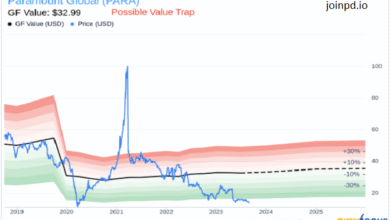Cryptocurrency Ponzi Scheme: DOJ Sentences Estonian Nationals

Cryptocurrency Ponzi schemes have become a troubling phenomenon in the digital finance landscape, as highlighted by the recent case involving two Estonian nationals. The U.S. Department of Justice (DOJ) revealed a shocking fraud operation that bilked investors out of over $577 million between 2015 and 2019, ensnaring countless victims worldwide in a web of deceit. Sergei Potapenko and Ivan Turõgin were finally sentenced for orchestrating this scheme, which involved misleading performance indicators and fake dashboards to lure in investors. Prosecutors are keen to expose the serious consequences of investor fraud, especially as substantial assets from the operation—including cryptocurrency, luxury cars, and real estate—are forfeited to help compensate victims. This pursuit of justice underlines the government’s commitment to clamping down on Ponzi scheme consequences in the ever-evolving world of cryptocurrencies, as the investigation continues, particularly regarding the now-infamous Hashflare scheme.
The recent crackdown on fraudulent digital finance operations reflects the growing concern over unscrupulous practices in the cryptocurrency market. Ponzi schemes, a form of investment fraud where returns are paid to earlier investors using the capital from newer investors, have gained traction with the rise of cryptocurrency trading. Through false promises of high returns and sophisticated marketing ploys, perpetrators have exploited the unregulated nature of crypto assets, drawing parallels to traditional swindles. In this context, the prosecution of the two Estonian individuals sheds light on the urgent need for regulatory measures to protect investors from such scams, highlighting the financial and emotional toll inflicted by these deceitful schemes. As authorities ramp up their efforts to combat financial fraud, understanding the mechanics behind these scams becomes imperative for potential investors.
Understanding Cryptocurrency Ponzi Schemes
Cryptocurrency Ponzi schemes are fraudulent investment scams that promise high returns with little risk to investors. These schemes typically attract victims by presenting attractive, seemingly legitimate investment opportunities that actually rely on funds from new investors to pay returns to earlier ones. This cycle continues until the scheme collapses, leaving the majority of participants with substantial financial losses and no recourse. The recent case involving two Estonian nationals highlights the dangerous allure of such scams, showing how easy it is for individuals to fall into the trap of believing they’re making a sound financial decision.
The prominence of cryptocurrency Ponzi schemes has surged, particularly in the wake of increasing global interest in digital assets. Scammers often exploit the lack of regulation and understanding surrounding cryptocurrencies to mislead victims. They create sophisticated marketing platforms, often using fake dashboards to show potential profits, which can mislead even wary investors. This situation underscores the critical need for investors to conduct thorough research and exercise caution before engaging in any cryptocurrency investments.
The Consequences of Ponzi Schemes in Cryptocurrency Investing are profound and far-reaching. Victims often face not only financial ruin but also emotional distress as trust is broken and hard-earned savings are lost. In the case of the recent DOJ prosecution against Sergei Potapenko and Ivan Turõgin, numerous victims from across the globe found themselves misled by false promises, resulting in a total loss exceeding $577 million. The societal implications are significant, as financial fraud cases like these can erode trust in legitimate investment opportunities in the cryptocurrency space.
Legal repercussions for those involved in cryptocurrency Ponzi schemes can be severe. The sentencing of Potapenko and Turõgin illustrates the United States’ commitment to prosecuting such fraudsters, imposing not only prison time but also financial penalties aimed at rectifying the damages caused. As authorities ramp up their scrutiny of fraudulent activities within the blockchain and cryptocurrency sectors, it is essential that investors remain informed and diligent to protect themselves from falling victim to similar exploitations.
The Role of DOJ in Prosecution of Cryptocurrency Fraud
The U.S. Department of Justice (DOJ) plays a pivotal role in prosecuting financial fraud, especially within the realm of cryptocurrency, which has seen dramatic growth and corresponding exploitation. In cases like the recent prosecution against Estonian nationals for their Ponzi scheme, the DOJ has utilized a multifaceted approach to apprehend and convict those responsible. This involves coordinating with international law enforcement agencies, such as Estonian authorities, to ensure comprehensive justice is delivered to both perpetrators and victims.
With the complexity of digital asset transactions, the DOJ faces unique challenges in securing evidence and building a case against fraudsters operating in the blockchain space. Despite these challenges, recent sentencing decisions reflect a decisive stance on investor fraud perpetrated through deceitful schemes like those promoted by Hashflare. The enactment of strict measures underscores the importance of safeguarding potential investors against scams that thrive on misinformation and unregulated environments.
Impact of Financial Fraud on Victims: The Emotional Cost of Investor Fraud can be devastating. Victims often carry the burden of significant financial losses, and many confront long-lasting repercussions that extend beyond mere monetary concerns. The psychological toll can include feelings of betrayal, depression, and anxiety, particularly for individuals who invested their life savings into what turned out to be fraudulent schemes.
The recent cases pursued by the DOJ illustrate not just the financial losses incurred by victims — which can amount to millions collectively — but also the systemic issues that arise from such widespread deceit. The actions taken by authorities aim to not only seek justice for victims but also impose stricter regulations on the cryptocurrency market to deter future schemes from emerging, emphasizing the ongoing need for consumer education and awareness in this rapidly evolving space.
Estonian Nationals Sentenced: A Case Study
The sentencing of Sergei Potapenko and Ivan Turõgin marks a significant moment in the battle against cryptocurrency-related fraud. Each received a 16-month prison sentence along with fines and hours of community service, serving as a cautionary tale for others in the industry. The scheme they operated deceived investors globally from 2015 to 2019, illustrating the far-reaching consequences of their actions on hundreds of thousands of individuals.
Interestingly, the case reveals not only the criminality of the Ponzi scheme itself but also indicates the broader implications for the cryptocurrency market. As other nations begin to address similar crimes, the focus on accountability and victim restitution becomes critical. The forfeiture of nearly $450 million in assets serves as an essential first step toward compensating those affected by this extensive fraud.
Investor Fraud: Understanding the Financial Impact on Victims highlights the gravity of such schemes that target unsuspecting individuals across the globe. The implications for victims extend beyond mere financial loss; many endure a profound sense of loss of safety and security in their financial choices. The case against Potapenko and Turõgin serves as a stark reminder to potential investors to remain vigilant and informed about whom they trust with their investments.
Moreover, addressing the aftermath of such investor fraud cases is vital for rebuilding trust in both traditional investment vehicles and the burgeoning cryptocurrency market. Efforts led by agencies like the DOJ to retrieve fraudulent gains and support victims in their recovery illustrate a pathway to restoring some sense of equity and justice in what is often a fractured and chaotic chapter for those affected.
Hashflare Scheme: Unpacking the Operation
The Hashflare scheme is a prime example of how seemingly legitimate cryptocurrency businesses can be constructed on a foundation of deceit. As a purported cloud mining company, Hashflare attracted numerous investors with the promise of mining returns that far exceeded industry standards. However, the actual operations were far removed from legitimacy, as funds were misappropriated for personal expenditures by the operators, Potapenko and Turõgin.
Investors were drawn into the scheme through attractive marketing tactics that framed Hashflare as a reputable gateway to cryptocurrency wealth. The reliance on new investor funds to pay returns to existing investors characterized the operation as a classic Ponzi scheme. Consequently, many individuals who placed their trust in Hashflare ended up with empty wallets, highlighting the need for rigorous oversight and greater investor education in cryptocurrency ventures.
Consequences of Ponzi Schemes for Investors emphasize that while some individuals may believe they can spot a scam, others are not so fortunate. The aftermath of the Hashflare operation has left many individuals grappling with loss and regret, making the necessity of robust regulatory frameworks more apparent. Victims of such schemes often find themselves in dire financial straits, struggling to recover their investments amid a landscape filled with misinformation.
In light of the challenges posed by cryptocurrency fraud, greater emphasis must be placed on transparency and accountability within the industry. The Hashflare case should serve as a wake-up call for both investors and regulatory bodies to work collaboratively towards creating a safer investment environment by enhancing due diligence practices and implementing stricter regulations tailored to the unique attributes of digital asset trading.
Frequently Asked Questions
What is a cryptocurrency Ponzi scheme?
A cryptocurrency Ponzi scheme is a form of investment fraud that promises high returns with little risk to investors by using funds from new investors to pay returns to earlier investors. This type of scheme often lacks legitimate business activity and relies heavily on recruiting new participants.
What were the consequences of the DOJ prosecution related to the cryptocurrency Ponzi scheme?
The DOJ prosecution resulted in the sentencing of two Estonian nationals, Sergei Potapenko and Ivan Turõgin, to 16 months in prison for their involvement in a global cryptocurrency Ponzi scheme that defrauded hundreds of thousands of investors, leading to significant financial losses and emotional trauma for victims.
How are victims compensated for losses from a cryptocurrency Ponzi scheme?
Victims of a cryptocurrency Ponzi scheme may receive compensation from seized assets related to the scheme. In the recent case prosecuted by the DOJ, over $450 million in assets has been forfeited to repay victims who suffered financial losses due to the fraud.
What are some Ponzi scheme consequences highlighted by the DOJ?
Ponzi scheme consequences include severe financial loss for investors, emotional distress, legal consequences for perpetrators such as prison sentences, and the forfeiture of illegally obtained assets for victim compensation, as seen in the recent DOJ case.
What was the Hashflare scheme and its connection to the cryptocurrency Ponzi scheme?
The Hashflare scheme was a fraudulent cryptocurrency investment platform that promised high returns through mining. It was part of the larger cryptocurrency Ponzi scheme operated by Sergei Potapenko and Ivan Turõgin, which ultimately misled investors about profitability and resulted in massive financial losses.
How did the DOJ and Estonian authorities collaborate on the cryptocurrency Ponzi scheme case?
The DOJ worked with Estonian law enforcement to prosecute the operators of the cryptocurrency Ponzi scheme and ensure the forfeited assets were returned to victims, highlighting the international effort to combat investor fraud within the cryptocurrency space.
What should investors look for to avoid cryptocurrency Ponzi schemes?
To avoid cryptocurrency Ponzi schemes, investors should be cautious of promises of exceptionally high returns with little risk, lack of transparency, heavy reliance on recruiting new investors, and absence of verifiable information about the business model.
What types of assets were forfeited in the cryptocurrency Ponzi scheme case?
In the cryptocurrency Ponzi scheme case prosecuted by the DOJ, over $450 million worth of assets were forfeited, including cryptocurrencies, funds in bank accounts, luxury vehicles, and real estate, which will be used to compensate the victims.
How can I report suspicious cryptocurrency investment schemes?
Suspicious cryptocurrency investment schemes can be reported to financial regulatory authorities, such as the SEC or the FTC in the United States, as well as local law enforcement agencies. Providing as much detail as possible can aid in the investigation.
What steps are law enforcement taking against cryptocurrency Ponzi schemes?
Law enforcement agencies, including the DOJ, are actively prosecuting individuals involved in cryptocurrency Ponzi schemes, confiscating fraudulent assets, and collaborating internationally to combat investor fraud in the cryptocurrency sector.
| Key Points | Details |
|---|---|
| Defendant | Sergei Potapenko and Ivan Turõgin |
| Sentence | 16 months in prison, $25,000 fine, and 360 hours community service |
| Total Funds Raised | Over $577 million from 2015 to 2019 |
| Criminal Activity | Running a global cryptocurrency Ponzi scheme |
| Forfeited Assets | Over $450 million in cryptocurrency, funds, vehicles, and real property |
| Victims | Hundreds of thousands globally, including in the U.S. |
| Company Involved | Hashflare |
Summary
The cryptocurrency Ponzi scheme highlighted by the U.S. Department of Justice represents a troubling trend in financial fraud where unsuspecting investors are misled and defrauded on a massive scale. The recent sentencing of Sergei Potapenko and Ivan Turõgin for their role in this scheme underscores the commitment of authorities to combat such illicit activities. As the DOJ aims to return forfeited assets to victims, this case serves as a critical reminder of the risks associated with investing in the cryptocurrency space and the importance of due diligence to avoid falling prey to similar scams.




